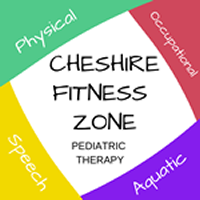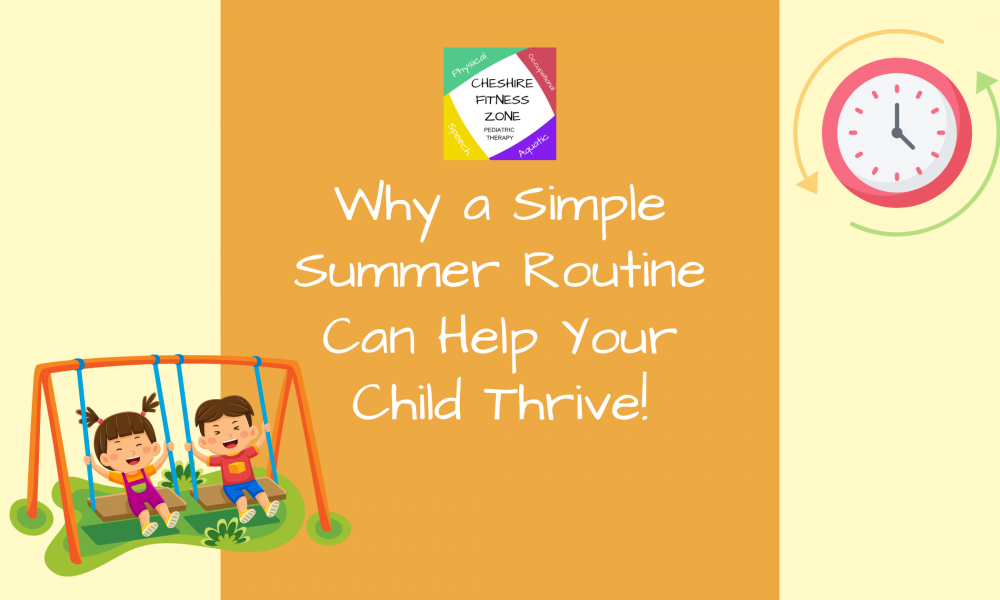Why Routines Still Matter in the Summer
Summer break is just around the corner!
When school lets out for summer, everything feels a little looser. Later mornings, more playtime, fewer demands. And while the break is well-earned, the sudden change in structure can throw kids off more than we expect.
During the school year, routines help kids feel grounded. They know what’s coming next and what’s expected of them. In summer, a simple routine still goes a long way. It brings comfort, keeps the day flowing, and helps kids stay on track with their development even through play.
Here are some easy ways to build that rhythm at home while still leaving plenty of room for fun.
Create a predictable flow to the day
Even if your family isn’t following a strict schedule, having a general sense of order to the day can make a big difference. This could mean starting the day with breakfast and a walk, keeping lunch around the same time, and winding down with a consistent bedtime routine. These anchor points help kids feel more secure and reduce anxiety about what’s coming next.
For younger children or those who respond well to visuals, a picture schedule can make daily transitions smoother. Laminate photos of familiar activities and use Velcro or magnets to arrange them. Older kids might enjoy checking off a simple list each day. Predictability does not mean rigid. It just offers a steady rhythm!
Add purposeful play
Children naturally learn through play, and with a little intention, you can guide those moments to support key developmental skills. Here are a few ideas you can easily incorporate into your day:
- Water play with sponges, cups, or small containers strengthens little hands and builds fine motor control
- Drawing with sidewalk chalk encourages movement, coordination, and creativity
- Blowing bubbles supports breath control, visual tracking, and attention
- Tossing bean bags or balls builds core strength, balance, and motor planning
- Sorting and matching items like toys, rocks, or household objects encourages problem-solving and early math skills
Even just ten to fifteen minutes of intentional play can go a long way in helping your child build strength, focus, and confidence!
Use simple transitions
For many kids, moving from one activity to the next is the hardest part of the day. Summer often means less structure, which can make those transitions feel even more challenging.
To make transitions easier, try using timers or giving short countdowns like “Five more minutes of playtime, then we’re getting ready for lunch.” Visual cues such as pointing to a picture schedule or moving a marker from one activity to the next can also help. Some children benefit from using a transition object like a small toy they carry from one room to another. You can also add movement in between activities, like jumping jacks, a dance party, or a short walk across the room to help reset their focus.
The more consistent your cues, the more your child will begin to recognize and respond to them with less resistance.
Build in quiet moments
While summer is full of energy and exploration, it is also important to give kids time to slow down. These quiet moments help with emotional regulation, focus, and self-soothing.
Ideas for quiet time include reading books together, coloring or painting, building with blocks, working on puzzles, or lying on a yoga mat with soft music playing in the background. You can also create a small quiet corner with pillows or soft toys where your child can relax.
Quiet time also gives you a chance to pause or get things done without constant activity.
End the day with something familiar
Bedtime routines are powerful. They signal to your child that the day is coming to a close and help the body and brain wind down for sleep.
A strong evening routine might include a warm bath or shower, brushing teeth, putting on pajamas, and reading a favorite book. Some children find comfort in a familiar bedtime song or choosing the same stuffed animal to sleep with. Try to keep bedtime around the same time each night, even on weekends, to support better rest and smoother mornings.
How to make it work for your family
Every family’s summer looks a little different, start small and build around what already works.
If mornings are slow, begin by creating an evening routine. If the day feels scattered, try adding just one or two consistent activities, like a daily walk or post-lunch quiet time. Do not feel pressured to schedule every hour. Even a loose structure can help your child feel more confident, independent, and calm!
Involve your child whenever possible. Let them help choose what activity comes next or decorate their visual schedule. When kids feel like they are part of the process, they are more likely to stay engaged.
Flexibility is part of the routine too. A routine doesn’t need to be perfect, It is about creating just enough predictability to help your child feel safe, supported, and ready to grow.
If you ever need ideas, guidance, or a little encouragement, our team is here to support you all summer long!



